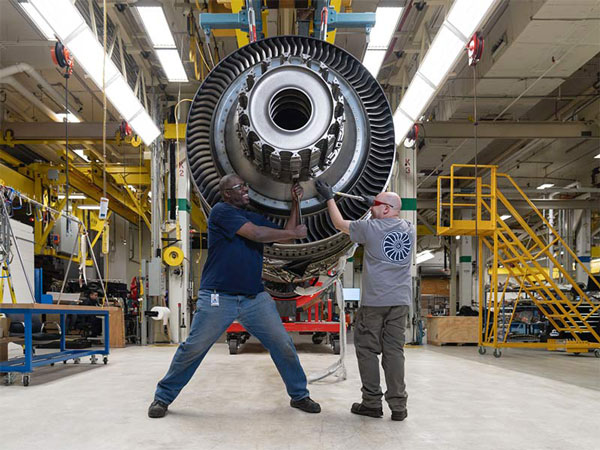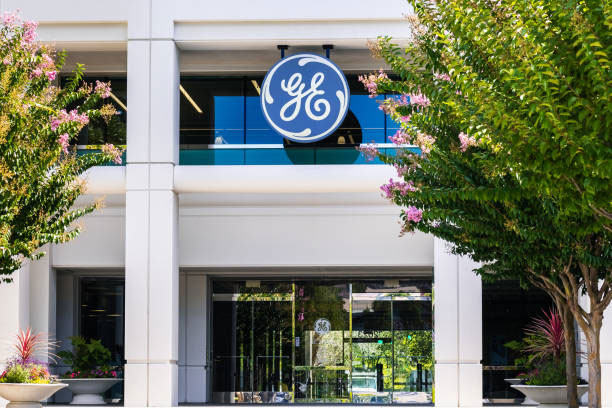The Rise and Fall of General Electric (GE): A Comprehensive Guide
Dec 21, 2023 By Susan Kelly
GE was once the richest and most powerful company in the world. However, after thirty years of decline, GE has emerged from bankruptcy with a new strategy to grow its business. To find out more about this story, read on.
In 1892, Thomas Edison built his first commercial factory in New Jersey. To keep up with demand for Edison's products, GE had to hire over 2,000 people towards a total workforce of 10,000 by 1911. By 1917 it had grown into one of America's largest manufacturers and power stations- but it would take another 35 years before it became the worldwide leader today.

After the First World War, GE became an expert in manufacturing electrical equipment, appliances, and aircraft, focusing on the production of radio receivers.
In 1930, to survive the transition from an industrial and electrical company to a financial services corporation, GE took on a new emphasis on investment banking.
In 1932, they created NBC Radio (later RCA), and by 1953 they had built their own TV station in New York.
In 1965 it became the world's first major company to use computers (Honeywell, Control Data Corporation (CDC), Univac), allowing it to produce many balance sheets with minimal effort. As early as 1970, GE dominated the U.S. balance sheet market and was responsible for over 60% of the total outstanding debt.
In 1984, GE sold all its financial assets to focus on four core business divisions: electric, power and water, transportation, and aircraft manufacturing. They took their first steps into the hi-tech industry in the same year by investing in Silicon Valley start-ups.
In 1986 they created a joint venture with RCA called NBC Inc., which acquired another company called Capital Cities/ABC in 1996. The company remained a major media corporation until it was sold in 2007 to Disney. Altogether GE's share price peaked at $50 per share during this period. This led to the acquisition of such companies as Honeywell Inc. in 2000 and the purchase of a stake in France's Alstom (a leading equipment manufacturer) in 2003.

After Ken Lewis left the company, Jeffrey R Immelt was appointed CEO in 2001. It was not long before he announced that he planned on shrinking the company into a purely industrial company that would concentrate on its expertise in the energy, health care, and aviation sectors. This was largely due to pressure from institutional shareholders who had grown weary of GE's declining value over the previous decade.
Immelt had to reform some of GE's business practices (for example, cutting costs and closing down inefficient subsidiaries). In 2002 he also ordered a restructuring of the company's capital structure. This involved writing-off $50 billion in pension obligations over five years, almost half of GE's $100 billion in outstanding retirement obligations. In addition to this, the company had to make up that its share price was nearly 50% lower than it should have been due to its "overvalued" status on the S&P 500 index.
By the end of 2004, GE had already shed $20 billion in liabilities and had a debt/equity ratio of 0.8. It had also paid off interest rate swap agreements with a total notional amount of $17 billion and created $22 billion in shareholder equity value by using the proceeds from asset sales to pay down debt. However, it became clear that GE's share price would not start to rise until it could prove that it was safe from further bondholder lawsuits and could demonstrate consistent earnings growth.
In 2005, GE finally decided to sell its underperforming railroad business to private equity firm Fortress Investment Group. This sale resulted in a $2.9 billion cash payment and around $7 billion in liabilities being paid by the company. The deal also reduced GE's debt to over $20 billion and created a $10 billion cash pile for new acquisitions. However, as per their original plan, GE kept its healthcare and aviation sectors, NBC TV network, and Universal Studios theme parks.
In 2007, Immelt unveiled the company's new corporate structure, which involved separating industrial businesses from financial services so that each could be managed independently. To achieve this, GE created a new division for its GE Capital division and sold off many of its consumer goods operations. However, it failed to develop a success story with its new industrial businesses similar to it in the mid-90s.
As the banking business began to falter in 2008, Immelt had little choice but to make further asset sales. In September 2008, GE announced it would sell its credit card division to Citigroup for $750 million and its remaining consumer finance division to Wells Fargo for around $480 million.
In 2009, GE Capital employed over 70,000 people and had over 60 countries worldwide.
GE has been affected by the economic downturn of recent years. Since 2008 it has seen a 25% drop in profits, which have been attributed to many factors, including global economic woes, slowdowns at NBC Universal, and the weak housing market in the US. However, since 2010 earnings have started to rise again as Immelt continues with his restructuring plan. GE's share price is currently around $20.
On November 19, 2011, GE announced its intentions to sell off its film unit, Universal Studios, and some theme parks in addition to its $26 billion credit card division. This move was designed to further reduce GE's overhangs and assure investors that the company was committed to regaining a clear growth path.
In 2012, Immelt oversaw GE's acquisition of the energy assets of France's Alstom for $9.5 billion. In April 2013, it was announced that a consortium of investors, including China's State Grid and Bechtel, would be investing $13 billion in two power plant projects in India owned by Tata Power.
In March 2013, Immelt announced that he would be stepping down as CEO at the end of the year in place of Antonio Pinto, who would take over. He will be replaced by Jeff Immelt.
In 2017, GE laid off many employees across the world. The company also cut the value of dividends by 1% per share. In 2021, GE got a rise in stock by 9.3%. In 2022, the stock price of GE fell by 10% due to inflation.

Susan Kelly Dec 22, 2023
What is Sole Proprietorship? Insights, Pros and Cons, and Implications
55961

Susan Kelly May 10, 2024
A Beginner’s Guide To IPOs
96518

Susan Kelly Dec 22, 2023
What Are Liquid Assets? Exploring Role and Impact in Financial Health
99751

Triston Martin Feb 06, 2024
Choosing Between Personal and 401(k) Loans: Insights for Financial Planning
74756

Triston Martin May 10, 2024
Market Capitalization: Definition, Example, And Categories
61166

Triston Martin Jan 20, 2024
An Ultimate Guide About Capital Gains
2465

Susan Kelly Feb 21, 2024
Analyzing Municipal Bonds: Is Investing in Munis the Right Choice?
84128

Susan Kelly Jan 15, 2024
What's The Distinction Between Equity and Debt Financing
77072